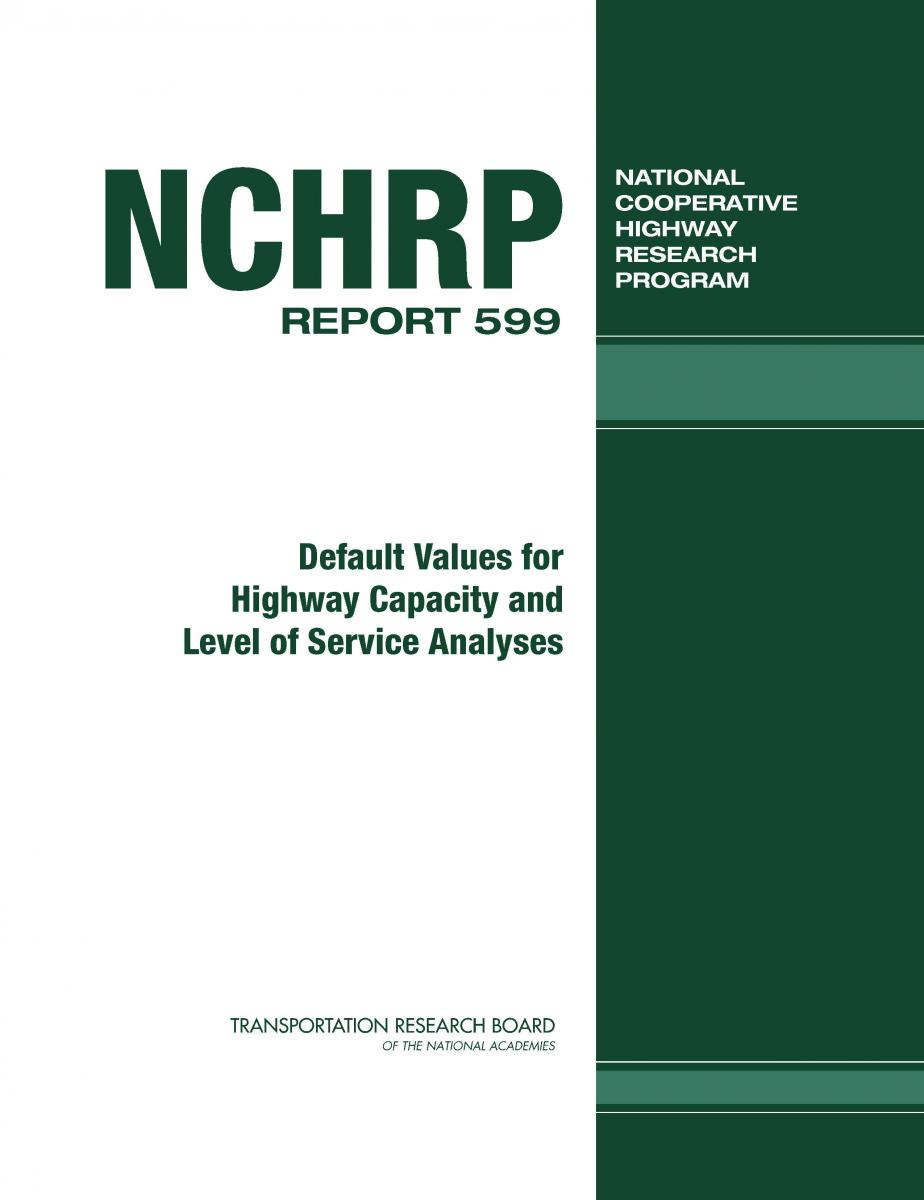Overview
 This report presents valuable information on the appropriate selection of default values when analyzing highway capacity and level of service based on an extensive set of field data from across the United States. In addition, the report describes how to prepare service volume tables, which can be a useful sketch planning technique.
This report presents valuable information on the appropriate selection of default values when analyzing highway capacity and level of service based on an extensive set of field data from across the United States. In addition, the report describes how to prepare service volume tables, which can be a useful sketch planning technique.
To assist engineers and planners in applying HCM methodologies, the HCM 2000 includes default values for many of the more difficult-to-obtain input parameters and variables. The HCM 2000 states: “A default value is a representative value that may be appropriate in the absence of local data.” As a result of insufficient field data, the HCM 2000 recommends only a single default value for many key data items, inadequately reflecting the variety of traffic and facility conditions across the United States. Because of limited resources or inexperience, analysts often use these default values inappropriately. The project creating this document reviewed all of the input values in the HCM to determine how sensitive the analysis methodologies are to them and the difficulty of obtaining non-default input values. Field data was assembled field data from various sources on the critical values. A statistical analysis of the field data was performed to develop guidance on the most appropriate default values to use. These recommended default values could be used in place of the default values provided in HCM 2000.